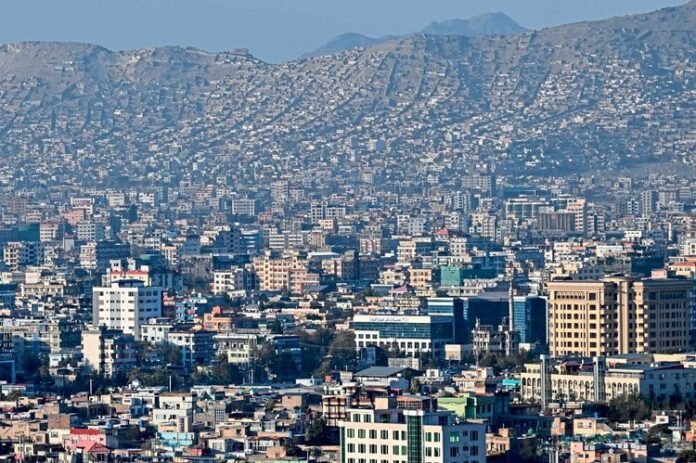Afghanistan is a country that is rich in resources and has an ideal geographical location for regional transit and trade but despite that, the country has been suffering for decades leaving its people in deep poverty, political unawareness, and stripped of their basic human rights.
Beyond having a valuable treasure of several trillion dollars in its trunk, Afghanistan, for its geographical location is having the potential to become a hub, connecting the energy-hungry South Asian huge market and the energy-rich Central Asian states, but this country has long been suffering for decades of war, corruption and impaired leadership, low level of political awareness of the people.
Hence, the people of Afghanistan have not been able to extract their extensive economic resources and use their valuable geographical location to build their country and improve the lives of their people.
The country is rich in mineral resources – the value of which was declared trillions a decade ago – including lithium and cobalt, which are the most essential key components in electric vehicle batteries. The Pentagon, in an internal document in 2010, estimated that Afghanistan had the potential to become “the Saudi Arabia of lithium”.
Unfortunately, Afghanistan’s ability to exploit those resources is critically hampered by a lack of adequate security, required transport infrastructure, political leadership, and technical expertise.
Its geopolitical location for regional trade and transit connectivity would help provide energy to Afghanistan’s fragile economy, most notably by connecting Afghanistan to the region’s largest market in India and Pakistan. A well-developed infrastructure would provide this country the opportunity to promote transit and trade activities via land routes that are comparatively more cost-efficient than the current air routes.
In addition to having enough resources for hydel and thermal power generation, Afghanistan has sufficient resources for the production of solar and wind energy, But despite having these resources, this country suffers from huge shortages in the field of electricity.
Interestingly, the trade links would decrease security threats, encourage South and Central Asian countries to engage with Afghanistan through public and private sectors, attract private sector investment in Afghanistan, and encourage governments to incorporate Afghanistan into regional programming and multilateral initiatives.
The international level of requirements for untouched mineral materials is high, as the world is trying to transform to using clean energy to tackle the implications of climate change, but despite having these resources, Afghanistan is a poor country and constantly in need of international aid. The US, England, Germany, and the Asian Development Bank are the major donors in providing cash aid to Afghanistan.
It is unrealistic to tie up the current difficult situation with our bad luck in the 21st century, but today’s critical situations are the result of the unrealistic perceptions and catastrophic deals of our domestic players and external strategic partners, who still have not learned from their mistakes and pretend to be the innocent angels on the earth.
China has all the essential capabilities and huge potential to develop transport facilities in Afghanistan, possesses highly trained professional force and market requirements, based on mutual interest, regarding the extraction, processing, and export of Afghanistan’s energy and mineral materials.
It will be an opportunity for Afghanistan and beneficial for China and Pakistan if it gets connected to China-Pakistan Economic Corridor (CPEC). The “One Belt and One Road” project is another Chinese economic project that takes a different direction and will lead the way to Afghanistan’s economic growth and regional stability.
In addition, Beijing and the Taliban have reached a new agreement for the extraction of oil in the north of Afghanistan. During this 25-year agreement, China will annually make huge investments, but apparently, the banking restrictions, preventing smooth transactions can be presented as an excuse for unfulfilled commitments and will probably create obstacles in the implementation of the agreement. Anyway, the agreement is an important step towards establishing international relations for the Taliban, which may mark the beginning of the group’s first major energy partnership with a foreign entity.
Of course, the start of development projects under the direct leadership of the UN-sponsored NGOs would have reduced unemployment, eradicate poverty, lower the level of immigration, and play a constructive role in eliminating political uncertainty, but unfortunately, we must say that the situation in Afghanistan is unlikely to improve soon. For the time being, we don’t have lots of opportunities and the people of Afghanistan are victimized by hypocritical deals of domestic leadership and global stakeholders.
There are still opportunities for Taliban leadership to adopt moderate policies, break away from the vicious cycle of war, fight corruption, eradicate extremism, end political violence, and move towards political stability and economic development. These objectives can only be achieved through regional and global collective and coordinated efforts.
Almost all the opportunities mentioned above are subject to the normalization of Afghanistan’s ties with the international community, which may result in the release of global sanctions based on the Taliban’s policies. The sanctions have blocked Afghanistan’s central bank access to more than $9 billion of its assets. The little international aid that reaches the country is too little to meet the needs of poverty, mostly the outcome of the Taliban’s harsh decrees.
The question is, how long will the current aid of the United Nations last? Who is to be blamed for the current wave of poverty? How long will the owners of the treasure of several trillion dollars in wealth fight with hunger? Who has kept an eye on the treasure under the chest of this poor nation? And how long will these catastrophic moments last?




